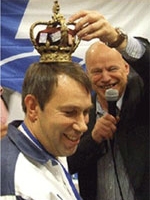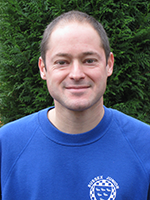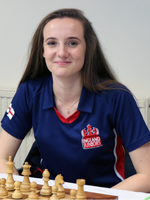About Training Days
Who can attend?
We cater for all ages and standards of play.
However, you must be either resident in Sussex or attend a school in Sussex to be eligible to attend.
What happens at Training Days?
SJC runs training days about once a month during the school year at various schools around the county.
Children are placed in the most appropriate group, according to age, experience, and ability. We aim for small groups – usually less than 10 for the younger sections – and our range of experienced coaches ensures that everyone from experienced county players to beginners are welcome.
We try our best to ensure continuity of coaching across the season; allowing coaches to get to know their groups, and children to build positive relationships with the coaches and the other children in their groups. Many children have made lasting friendships with other children they have met through chess.
Timings
Generally, the morning sessions run between 10:00am and 12:30pm, with the afternoon starting at 13:30 and finishing at 16:00.
There will be at least one break during each half-day session – the younger age groups may break more frequently as dictated by the attention span of the attendees!
Full or Half Day?
During training, the morning tends to focus on more formal training, whilst the afternoon sessions are more loosely structured with children involved in activities such as simultaneous chess or mini tournaments.
Half day training is especially suitable for beginners and younger children.
Who are the coaches?
All our regular trainers are both experienced players and coaches; mostly with many years experience of coaching juniors in clubs or schools.
All have enhanced DBS clearance.
In short – no! Come as often as you like, and as fits in with your family’s schedule.
However, highly motivated children aspiring to the county squads will benefit from regular input and bonding with their team-mates.
What facilities are provided?
A full light refreshments service is provided at all events; comprising hot and co
ld drinks, tuck shop, sandwiches, toasted sandwiches, bacon rolls and hot dogs at very reasonable prices.
Parents are encouraged to make use of the catering, as this is an important fund-raiser for SJC, enabling us to offer more events and subsidise travel to away venues.
Supervision – can I leave my child?
SJC are unable to provide the level of staffing needed to act ‘in loco parentis’. Parents/Carers are responsible for their children at all times during the event.
Supervision duties may cover more than one child, so Parents/Carers may choose to ‘team-up’ for an event. If you are not staying please make the supervising arrangements for your child clear when booking or at registration.
If your child has any medical or other needs which may necessitate urgent or particular action during the day, we ask that you make this known to the trainer at the start of the session.
About Tournaments
Finding the right tournament
A combination of factors common to most tournaments such as gradings, swiss pairings and major/minor sections help to ensure that all competitions are suitable for both experienced and less experienced players. It is very unusual for a child to leave a tournament without scoring any points.
SJC run two types of tournaments – age-group tournaments and grand prix. Age group tournaments will generally be smaller events, so may be a good place to start for the younger player.
Age-Group Tournaments
SJC run one tournament per year for each of the following age groups; Under-7, Under-8, Under-9, Under-11, Under-11 girls, Under-13, Under-18, and Under-18 girls. These tournaments are only open to players who meet the age criteria for the tournament (see opposite), so your child will only be competing against players of a similar age.
These tournaments are also usually ‘closed’ – which means they are exclusively for Sussex players (usually defined as those who live, go to school, or attend a chess club in Sussex).
Often, tournaments incorporate School Team prizes and medals, so as well as competing as an individual, your child’s score can contribute to their school total.
Some age-group tournaments, notably the U9, U11 and U11 girl events, are selection events for the County squads.
Grand Prix Tournaments
There are 6 tournaments in our annual ‘grand prix’.
The grand prix system is designed to reward participation, as points earned in each individual event count towards a season total. Loyalty is also rewarded with a special medal being presented to those who compete in 5 or more of the constituent tournaments.
Each individual tournament seeks to cater for any child who is aged under 18 by splitting the entry into four categories: U11 Major, U11Minor, U18 Major and U18 Minor – each category having it’s own trophies.
Additionally there are usually awards for the highest placed U7, U8, U9, U10 and Top Girl, plus ‘Arbiter’s’ prizes which reward qualities such as enthusiasm, resilience and sportsmanship.
The Minor tournaments are designed to allow the less experienced players to gain experience of competing.
Generally, if your child is aspiring to play for a county squad, they should enter the Major sections. Players may ‘play up’ an age group at the discretion of the organisers.
What age-group is my child in?
For SJC events, your child’s age at midnight on the preceding 31st August determines their age-group for events. So, for example, if your child was aged 8 on 31st August, they are considered be be an Under-9 (and will generally be in school Year 4).
Most school and English junior chess tournaments operate this system. Confusingly, international events usually operate on a calendar year but this will only affect your child if they are selected for either the England Squad, or to play for Sussex in an International event.
Some childen have grades – what do they mean?
Grades are used in chess to organise pairings in tournaments. They work a bit like a seeding system, to ensure that the top players do not meet each other in early rounds.
The English Chess Federation (ECF) calculates grades using games which are submitted for grading. The algorithm is complex (more detail can be found on the ECF website) but in essence, the grade of your opponent is taken into account as well as whether you won, lost or drew the game.
SJC submits all games played at Sussex tournaments for grading so the more games you play, the quicker you will aquire a grade of your own. The ECF calculates grades twice a year in January and July with minor revisions in between.
Who decides who my child plays against?
SJC tournaments, in common with most chess events, are run using a ‘Swiss’ pairings system.
Players who win receive a point, those who draw receive half a point and losers receive no points. Win, lose, or draw, all players proceed to the next round where they face opponents with the same (or almost the same) score. No player is paired against the same opponent twice and over the tournament each player should play an equal number of games with black and white.
In simple terms, this means that children play opponents who are on the same number of points as them. For inexperienced players, this means that they will get easier games as the tournament goes on, and it is unusual for players to leave the tournament without any points.
In some situations, complex rules are needed to resolve pairings. Please feel free to ask the tournament manager for the day to explain your child’s pairing.
Some games are played using special clocks – why?
All tournaments have to have time limits on each round. SJC tournaments are ‘rapidplay’ tournaments with an allowance of 30 minutes per player, so a maximum of one hour for each round.
All our grand prix events and the older age-group tournaments use chess clocks in order to record the time taken by each player. They are very easy to operate, and an explanation and demonstration will be given in their use at the start of the event.
The tournaments for the younger (U7, U8) age groups are less formal with a shorter time limit (usually 30 minutes for the round), and fewer rounds, and generally will not use clocks.
My child scored the same number of points as the winner, but came second on ‘progressives’ – why?
This is simply a method of resolving tie-break situations and is calculated by adding together your points as at each round.
For example, a player who Won, Lost, Won, Drew would have a final score of 2.5 and progressive scores of 1, 1, 2, 2.5, giving a total of 6.5. A player who Won, Won, Lost, Drew would also be on 2.5 points, but would have progressive scores of 1, 2, 2, 2.5 giving a total of 7.5.
This is an attempt to put a higher value on scores which were achieved by scoring better in the initial rounds than by finishing from behind.
The rationale for this system is that a player who scored well early in the tournament has most likely faced tougher opponents in later rounds and should therefore be favored over a player who scored poorly in the start before subsequently scoring points against weaker opponents.
How do I enter one of your events?
Full details of our current programme of events and how to enter are on Our Events page.







